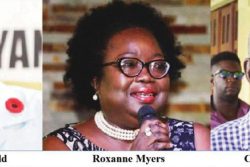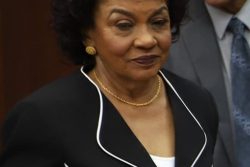CAYO DISTRICT, Belize, (Reuters) – Belizeans yesterday voted in a referendum on whether a top U.N. court should rule on neighboring Guatemala’s claim that it is the rightful owner of half of Belize’s territory, a dispute dating back to Spanish and British colonial rule.
Guatemalans in April 2018 overwhelmingly voted to ask the International Court of Justice (ICJ) in The Hague to make a decision on the dispute with Belize.
The referendum in the small Central American country is highly politicized, but could help end a border conflict that originated during the colonial era.
Belize’s ruling United Democratic Party (UDP) has argued in favor of seeking the court’s intervention in hopes of settling the matter once and for all, betting the court will uphold the current border.
Earl Trapp, UDP mayor of the twin towns San Ignacio and Santa Elena, said a vote for the court was “imperative.”
“This is the time that we have support from the world, from the U.N., to end this unfounded claim,” he said.
A trickle of voters reached polling stations during the morning, with greater numbers expected in the afternoon. Results of the referendum are expected by early Thursday.
Critics of the plan, which include the opposition People’s United Party (PUP), are pushing voters to reject arbitration by the court due to the risk that Belize could lose a large chunk of disputed territory from its center to the south.
Alfaro Bol, a voter in Stann Creek West in southeastern Belize, said he did not want ICJ judges to get involved.
“We have defined borders,” he said. “There’s no need for 15 foreigners to tell us where our borders lie.”
Guatemala recognized the independence of Belize at the beginning of the 1990s. But it never accepted the borders and continues to claim about 11,000 square kilometers, about half the territory of the former British colony.
In December 2008, both countries signed a deal that its inhabitants could vote to decide whether the territorial claim, which includes various islands, should be decided by the ICJ.
Belize, an English-speaking country of around 375,000 people, became independent in 1981.
Inhabited by Maya before the arrival of Europeans, the territory was claimed by Spain and settled by British buccaneers during the 17th century. Belize later became a British possession surrounded by countries that Spain had colonized.
Some 147,000 Belize residents registered to take part in Wednesday’s referendum.




